This is the English translation of a Turkish-language article that was originally published by AVİM on 13 December 2022.
Political history is full of examples of significant turning points in international relations. The end of the Cold War as a result of the collapse of the Soviet Union was such a development that radically altered world politics. As is known, with the collapse of the Soviet Union resulted in the emergence of 15 new states, and the Caucasus and Central Asia in particular have become pivotal regions. The states of the region gradually started to recover from stagnation and passivity to become key actors of international relations, especially through their geographical attributes, natural resources, and strategic importance.
Since the 1990s, projects aiming to integrate energy resources and transportation services into regional networks within the vast Eurasian geography have been put forth. In this context, the Baku-Tbilisi-Ceyhan Pipeline (which was built to market the Caspian oil to the world, the South Caucasus Pipeline and the Southern Gas Corridor (which aim to open the Caspian natural gas facilities to Western markets), the Trans-Anatolian Natural Gas Pipeline/TANAP project and its continuation the Trans-Adriatic Pipeline/TAP (which utilize these corridors and enable the transportation of Azerbaijani natural gas to Turkey first and then to Europe via/through Turkey), and the Baku-Tbilisi-Kars railway (which became operational in 2017) have been prominent projects for providing energy and transportation connectivity between Asia and Europe.
Since the conceptualization of these projects, it has not been possible to assign a role to Armenia despite its advantageous geographical location. The fact that the politicians of the Armenian administration in Nagorno-Karabakh brought forward their narrow-minded regional interests in Armenia and are making the genocide allegations a part of the state’s political agenda with the provocations of the Diaspora have ruined the possibility of dialogue. Thus Armenia has virtually condemned itself to isolation.
Projects launched in the Caucasus and Central Asia are expanding in the 21st century and are being integrated with additional new projects. The Belt and Road Initiative, which started in China's Xinjiang Uyghur Autonomous Region and gradually expanded to include the coastal areas in the east and south of Asia, has become a comprehensive project showing the importance of international economy and transportation routes in the region. At this point, the China-Kyrgyzstan-Uzbekistan (CKU) railway project, which has been on the agenda since 1996, has gained momentum. According to the agreement signed at the Shanghai Cooperation Organization Heads of State Summit held on 15-16 September 2022, the construction of this project is expected to start in 2023. China considers this as the key project of the "Belt and Road". When it is completed, the CKU would reduce the shipping time by approximately seven to eight days, connecting China, the Persian Gulf, and the EU countries.[1] The project is expected to be linked with the existing and future railway networks in the Caucasus and the Caspian Sea infrastructure. In a sense, mentioned a century ago by the British geographer Halford Mackinder who is regarded as the founder of modern geopolitics, the description "that vast area of Euro-Asia which is inaccessible to ships, but in antiquity lay open to the horse-riding nomads, and is to-day about to be covered with a network of railways”[2] is beginning to materialize in the 21st century.
The importance of the Caucasus as a transition and connection hub between the West and Central Asia is obvious. It is a fact that the strategic parameters of the South Caucasus countries are increasing in parallel with this importance. However, it is noteworthy that Armenia, as a South Caucasus country, is virtually non-existent in this regard. While the region is witnessing developments that can be considered as revolutionary in magnitude, Armenia appears to be far from being an active party in the regional activities.
As anyone who looks at the map can see, Armenia is a land-locked country. In its north and south, it is surrounded by countries that create almost impenetrable obstacles to Armenia in terms pursuing its relations with the West. Armenia, as previously mentioned, has made the genocide allegations a part of its political agenda since the 1990s. As a result of this agenda, and the propaganda and efforts of the Armenian Diaspora that cause harm to to the country rather than bring it benefit, Armenia perpetuates its position of being completely excluded in the region. As a result of not being able to establish normal relations with its neighbors, it is observed that in addition to being isolated from the political conjuncture of the region, Armenia remains far from realizing its main policy goals.
Being a link in this chain of mistakes, the administrators in Armenia could not and did not want to see that Türkiye, situated just beyond Armenia’s western border, could provide Armenia a natural connection to Europe and that the shortest and safest route from Armenia to Europe passes through Türkiye. In the same vein, Armenia has ignored the possible contribution that Türkiye’s potential European Union membership (since it is a country in the negotiation process with the EU) would bring to the regional security and the economic development of Armenia. On the contrary, it has often displayed hostility towards Türkiye. Today, because of all of this, Armenia appears to have imprisoned itself in this geography. It is a fact that the standard of living and welfare of the Armenian people is what is most adversely affected by this situation. It is clear that Armenia can put an end to its political and economic isolation if the necessary steps are taken with the Armenian administrators starting to follow rational policies that put state interests at the forefront.
[2] Jonathan E Hillman, The Emperor's New Road: How China's New Silk Road Is Remaking The World, Yale University Press, 2020, p. 9.
© 2009-2025 Center for Eurasian Studies (AVİM) All Rights Reserved
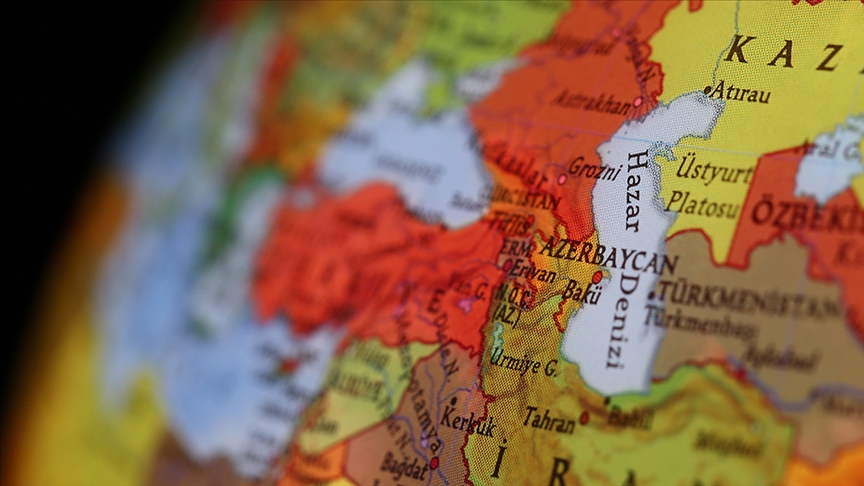
 GEORGIA’S ANAKLIA PORT ON THE MIDDLE CORRIDOR ROUTE
GEORGIA’S ANAKLIA PORT ON THE MIDDLE CORRIDOR ROUTE
 THE B5+1 FORUM AND “THE GREATER CENTRAL ASIA”
THE B5+1 FORUM AND “THE GREATER CENTRAL ASIA”
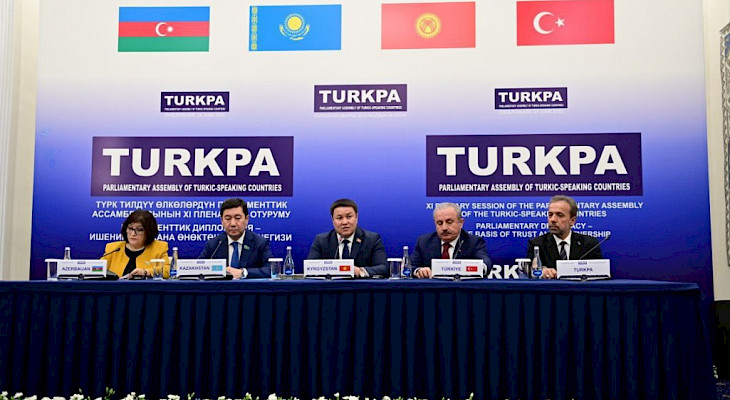 11TH PLENARY SESSION OF THE PARLIAMENTARY ASSEMBLY OF TURKIC COUNTRIES
11TH PLENARY SESSION OF THE PARLIAMENTARY ASSEMBLY OF TURKIC COUNTRIES
 THE FUTURE OF THE TURKIC COUNCIL
THE FUTURE OF THE TURKIC COUNCIL
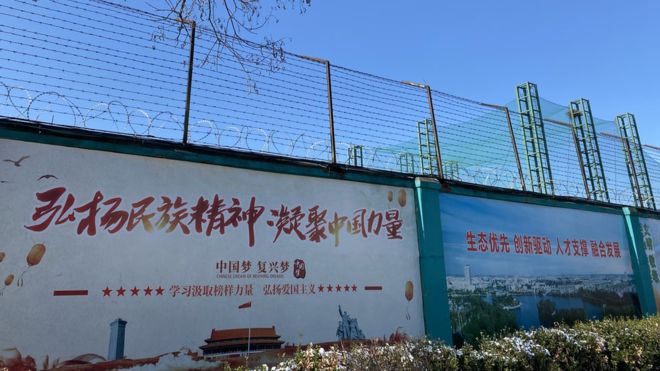 FACTORIES USING FORCED LABOUR OF THE UYGHURS PROVIDE SUPPLIES FOR 83 WELL-KNOWN BRANDS
FACTORIES USING FORCED LABOUR OF THE UYGHURS PROVIDE SUPPLIES FOR 83 WELL-KNOWN BRANDS
 STARBUCKS SUCCUMBS TO IGNORANT ANTI-TURKISH PROPAGANDA
STARBUCKS SUCCUMBS TO IGNORANT ANTI-TURKISH PROPAGANDA
 AVIM WEBINAR VIDEO REMOVED FROM A SOCIAL MEDIA PLATFORM HAS BEEN REINSTATED
AVIM WEBINAR VIDEO REMOVED FROM A SOCIAL MEDIA PLATFORM HAS BEEN REINSTATED
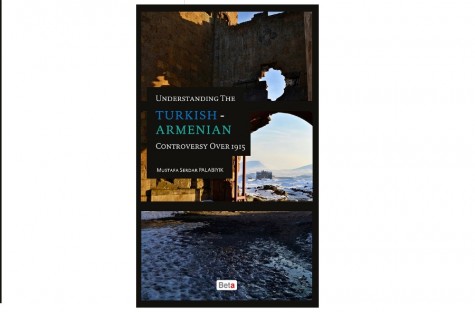 BOOK LAUNCH-UNDERSTANDING THE TURKISH-ARMENIAN CONTROVERSY OVER 1915
BOOK LAUNCH-UNDERSTANDING THE TURKISH-ARMENIAN CONTROVERSY OVER 1915
 CAN SREBRENICA GENOCIDE BE COMPARED TO THE EVENTS OF 1915 WITHIN THE SCOPE OF FREEDOM OF EXPRESSION?
CAN SREBRENICA GENOCIDE BE COMPARED TO THE EVENTS OF 1915 WITHIN THE SCOPE OF FREEDOM OF EXPRESSION?
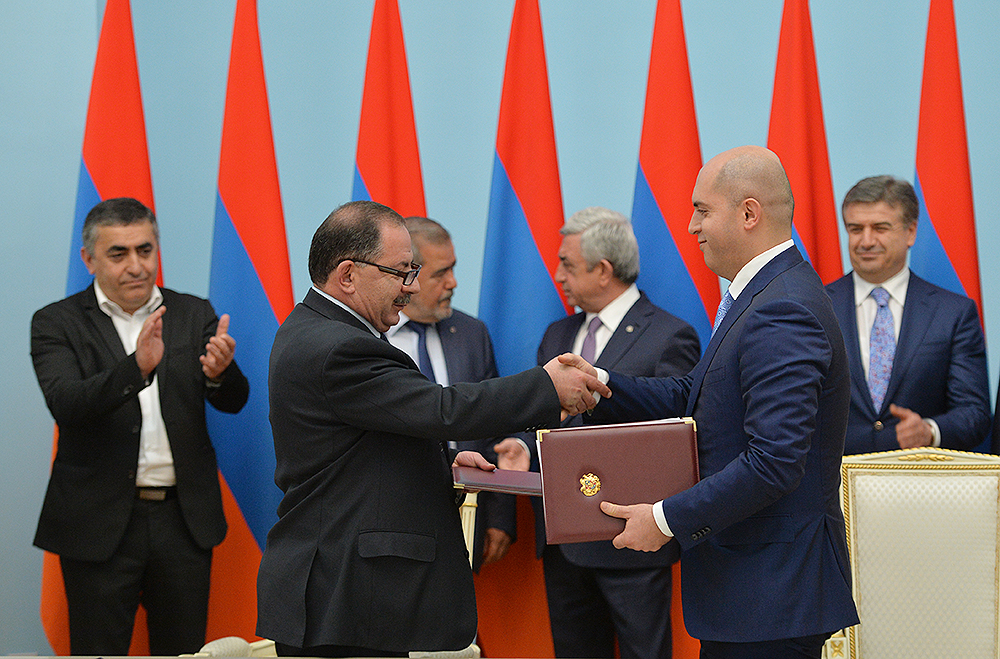 COALITION MEMORANDUM BETWEEN THE RULING RPA AND THE ARF IN ARMENIA: NOTHING NEW AFTER THE 2 APRIL 2017 ELECTIONS
COALITION MEMORANDUM BETWEEN THE RULING RPA AND THE ARF IN ARMENIA: NOTHING NEW AFTER THE 2 APRIL 2017 ELECTIONS




























